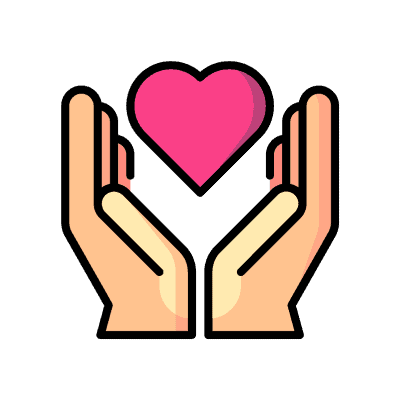Disagreements are inevitable in any relationship, especially when it comes to romantic ones. When we say disagreements, we’re referring to arguments—yes, those nasty verbal disagreements. And while it is natural, in fact, it is normal and healthy for couples to have differing viewpoints at times, the crux lies in engaging in healthy and effective communication that shows understanding, empathy, and, above all, a resolution to said conflict.
Although disagreements are not necessarily a negative thing, they can also shine a light on the areas of your relationship that require attention and a little TLC. If your conflicts revolve around little things, like if you should watch a sci-fi or a rom-com for movie night, social plans, or whose turn it is to take out the garbage, we have some pretty simple ways to talk it out! Effective dialogue is the key to resolving conflicts in a calm, cool, and collected way.

Practice Active Listening
It can be disheartening when you feel like your partner isn’t listening to what you’re saying. Yes, they may hear you, but are they actually listening?
Interrupting or making assumptions about your partner’s thoughts robs them of the chance to express themselves. Hear us out: Even if you believe you get what they are saying, there’s a good chance you might be wrong, and on top of that, your partner will feel unheard. Show them you are paying close attention by practicing active listening.
When your partner shares their thoughts, paraphrase their words—restate them back to them in your own words. This proactive step can put a stop to any misunderstandings from the jump. Another thing to do is to use perception-checking to make sure you’re picking up what they are laying down. Questions like, “It seems that comment upset you—am I correct?” These methods not only sidestep misunderstandings but also show your attentiveness and concern for your significant other.

Set Clear Boundaries
Everyone is entitled to respect, even during a disagreement. If your partner resorts to derogatory remarks, name-calling, or mockery, assertively ask them to stop. If they keep at it, take a step back and say you aren’t going to keep arguing if they can’t keep it respectful and mature.

Uncover the Root Cause
Often, disputes pop up when one partner feels their wants or needs are being overlooked. Try to identify the underlying concern that spawned the disagreement. It might be that feelings of insecurity or disrespect are manifested through fights over totally unrelated matters—finding out and addressing the core issue can put a stop to silly disagreements that are masking the real reason for the problem.

Focus Only on the Current Disagreement
It’s not uncommon for a disagreement to meander away from the initial topic. Like a car skidding on black ice, a heated dispute can suddenly do a full 180 in the other direction. Be super cautious of these hazards and try to remain focused on resolving the matter at hand.
Wandering into a maze of tangential issues can hamper any possible resolution, as attempting to solve multiple problems simultaneously can spiral into confusion. Couples who stick to the issue have a higher likelihood of reaching a satisfactory resolution. By practicing understanding and patience, both can fully process their emotions and arrive at a solution before switching gears to a totally different topic.

Accept Differences
In some instances, agreeing to disagree is the pragmatic approach when coming to any sort of resolution seems impossible. Not every issue will end in a kumbaya agreement, and it’s important to prioritize the significant issues. If one of those issues concerns a value or strong belief and there is no compromise in sight, it might signal that there is a compatibility problem.

Seek Middle Ground
Compromise is the foundation of any successful conflict resolution and a happy, healthy relationship, albeit challenging to reach at times—change is hard! To offset any potential hurt feelings, you can take turns making decisions on minor matters like dinner choices or attempt to find a common ground that leaves both of you feeling good.

Look at the Big Picture
If a disagreement changes your feelings towards each other or means you have to compromise your principles or values, it’s essential to emphasize your stance if it’s a deal breaker. If it doesn’t change your sentiment toward them or it doesn’t go against your core values, try to see your partner’s perspective, the cause of their frustration, and the possibility of compromise. Approach your discussions in a way that provides space for both of you to express how you feel.

Take a Breather if Necessary
If you notice a negative pattern emerging or either of you straying from the above guidelines, consider putting a pin in the discussion. Sometimes, walking away for a brief break can calm down rising tempers.
Our Final Thoughts
Research on conflict underscores the importance of empathy and anger management in handling disagreements in a productive and respectful manner.
Voicing your concerns is healthy in a relationship, provided conflicts are handled with understanding and in a constructive way toward a possible resolution!
Remembering and sticking to these tips during a disagreement will enable you to handle future arguments in a constructive and healthy manner. And if you can’t seem to get a handle on your conflicts, you can always seek help from a professional therapist.
Unlike Noah and Allie from The Notebook, constant bickering and heated fights are telltale signs of an unhealthy, possibly toxic relationship, regardless of Noah and Allie’s happy ending.
